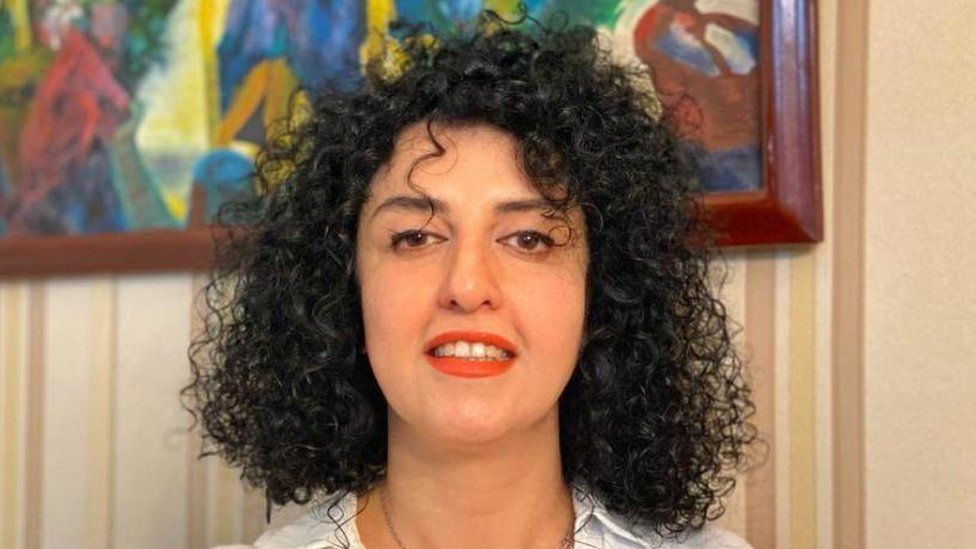-

-
-
Loading

Loading

Narges Mohammadi, an Iranian human rights activist who was recently awarded the Nobel Peace Prize, has begun a hunger strike to protest Iran's denial of medical care and its mandatory hijab law, as stated by her family. Mohammadi, who suffers from heart and lung conditions, requires treatment that is being blocked by a prosecutor who refuses to allow her transfer to a hospital. Last week, her family revealed that the denial of medical care was a result of her refusal to wear a hijab. The chairwoman of the Norwegian Nobel Committee expressed deep concern over Iran's requirement for female inmates to wear a hijab in order to receive hospital care, calling it inhumane and morally unacceptable. Iranian authorities have yet to comment on the situation. The family received a message from Evin prison in Tehran informing them that Mohammadi had initiated a hunger strike, stating that she was protesting against Iran's policy of delaying medical care for inmates and its mandatory hijab policy. Despite repeated appeals to prison officials and the judiciary, the prosecutor had refused to allow Mohammadi's transfer to a hospital for urgent medical treatment. Last week, other female inmates at Evin protested for two days and nights in an attempt to pressure authorities into transferring Mohammadi to the hospital, but their efforts were unsuccessful, as the prison warden announced that the higher authorities had prohibited her transfer without a headscarf. Mohammadi, the vice-president of the Defenders of Human Rights Center in Iran, is currently serving a 10-year prison sentence. Throughout her life, she has faced multiple arrests, convictions, and sentences totaling 31 years in prison. She has also been sentenced to 154 lashes, though it remains unclear if the punishment has been carried out. Iranian law, which is based on Sharia, requires women to cover their hair with a headscarf and wear loose-fitting clothing to conceal their bodies. In September 2022, there were widespread protests in Iran following the death of Mahsa Amini, a young woman who died in custody after being detained by morality police for supposedly wearing an "improper" hijab. Many women and girls have burned or waved their headscarves during demonstrations against the clerical establishment, and some have stopped wearing headscarves altogether in public. In a letter to the Norwegian Nobel Committee, Mohammadi described the compulsory hijab as a tool of control and repression imposed by the authoritarian religious regime in Iran.